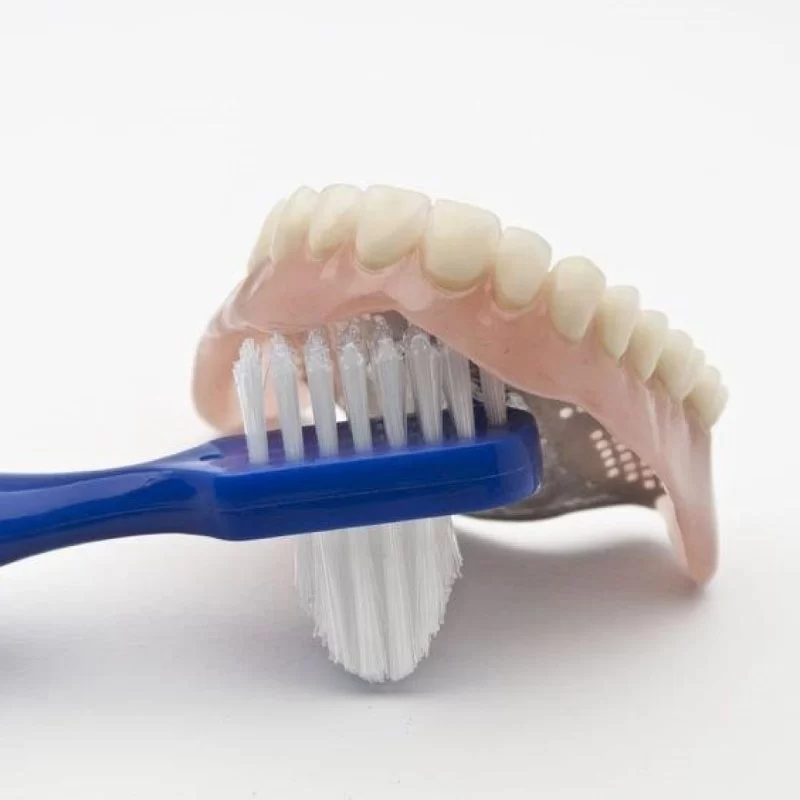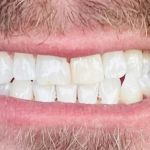
How to Maintain Oral Hygiene with Partial Dentures: Care and Cleaning Guide
- understanding-partial-dentures-and-their-role
- why-cleaning-partial-dentures-matters
- daily-oral-care-routine-with-partials
- how-to-clean-partial-dentures-safely
- common-mistakes-in-partial-denture-hygiene
- real-stories-patient-experience-with-partial-care
- where-to-find-reliable-denture-care-solutions
1. Understanding Partial Dentures and Their Role
Partial dentures are custom-made dental appliances designed to replace missing teeth while preserving the alignment and functionality of your bite. Unlike full dentures, partials are typically used when some natural teeth remain. They clip onto existing teeth and restore aesthetics and chewing ability. But maintaining oral hygiene with partial dentures requires diligence, precision, and the right habits.
2. Why Cleaning Partial Dentures Matters
Just like natural teeth, partial dentures are prone to plaque buildup, staining, and bacterial colonization. Poor hygiene can lead to bad breath, gum irritation, and even infections like stomatitis or denture-related candidiasis. Effective care doesn’t just prolong the lifespan of your dentures—it directly impacts your overall oral health.
3. Daily Oral Care Routine with Partials
3.1 Morning Care
Start your day by removing and rinsing your partial dentures. Then, gently brush your natural teeth, gums, and tongue with a soft-bristled toothbrush and non-abrasive toothpaste. Don’t forget to clean the areas where the partial clasps attach to your natural teeth—plaque can easily collect there.
3.2 Evening Routine
At night, always remove your dentures before bed. Soaking them overnight not only helps clean the prosthetic but also gives your gum tissues time to rest. Use a mild denture cleanser and store them in lukewarm—not hot—water to avoid warping the materials.
4. How to Clean Partial Dentures Safely
Use a denture-specific brush and non-abrasive cleanser daily. Regular toothpaste may scratch the surface and allow bacteria to thrive. Hold the denture over a folded towel or a basin of water while cleaning to avoid damage if dropped. Pay attention to the metal clasps and soft lining materials—they require gentle but thorough attention.
4.1 Weekly Deep Cleaning
Once or twice a week, consider a deeper clean using an ultrasonic denture cleaner or effervescent cleaning tablets. These remove built-up debris and help eliminate odor-causing bacteria. Still, always follow up with manual brushing for best results.
5. Common Mistakes in Partial Denture Hygiene
One of the most common errors is wearing partials 24/7. Continuous wear increases the risk of gum sores and infections. Another is using bleach or harsh chemicals, which can degrade the material and harm oral tissues. Many also forget to schedule routine dental checkups. Even if you wear dentures, regular exams are essential to assess fit, oral tissue health, and detect hidden problems.
6. Real Stories: Patient Experience with Partial Care
Take Sarah from Portland, for example. After receiving her upper partial denture, she initially neglected her cleaning routine. “Within three weeks, I had inflammation around my molars,” she said. After consulting her dentist, she adopted a twice-daily cleaning practice and noticed an immediate improvement. Another patient, Mark, discovered that switching to a gel-based cleanser reduced his denture staining significantly.
7. Where to Find Reliable Denture Care Solutions
If you're looking for trusted products and professional guidance on how to maintain oral hygiene with partial dentures, head to Dentistry Toothtruth. Whether it’s anti-bacterial cleansers, specialized brushes, or professional advice, they provide what you need to keep your smile clean, confident, and healthy.
In the end, partial dentures should never be an obstacle to great oral hygiene—they should enhance it. By adopting a consistent care routine and using the right tools, you’ll not only protect your investment but also ensure lasting comfort and oral health.







 Dentist Riverside - TranscenDental Smiles5.0 (274 review)
Dentist Riverside - TranscenDental Smiles5.0 (274 review) I. Stephen Brown, DDS, FACD, FICD4.0 (37 review)
I. Stephen Brown, DDS, FACD, FICD4.0 (37 review) Topline Family Dental4.0 (259 review)
Topline Family Dental4.0 (259 review) Charleston Dental Associates4.0 (440 review)
Charleston Dental Associates4.0 (440 review) Dentist Of Wyckoff NJ0.0 (0 review)
Dentist Of Wyckoff NJ0.0 (0 review) Dr. Michelle Green, Green Family Dental5.0 (32 review)
Dr. Michelle Green, Green Family Dental5.0 (32 review) The Importance of Oral Health Education During Pregnancy for a Healthy Pregnancy
The Importance of Oral Health Education During Pregnancy for a Healthy Pregnancy Best Tips for Brushing Your Teeth Properly for Healthy Gums: Essential Techniques for Oral Health
Best Tips for Brushing Your Teeth Properly for Healthy Gums: Essential Techniques for Oral Health Why Skipping Dental Checkups Can Lead to Bigger Oral Health Problems
Why Skipping Dental Checkups Can Lead to Bigger Oral Health Problems Advantages of Porcelain Dental Restorations
Advantages of Porcelain Dental Restorations How Can Diabetes Cause Tooth and Gum Problems? Preventing and Managing Oral Health Issues
How Can Diabetes Cause Tooth and Gum Problems? Preventing and Managing Oral Health Issues Healthy Habits for Promoting Good Oral Health and Hygiene: Tips for a Healthy Smile
Healthy Habits for Promoting Good Oral Health and Hygiene: Tips for a Healthy Smile